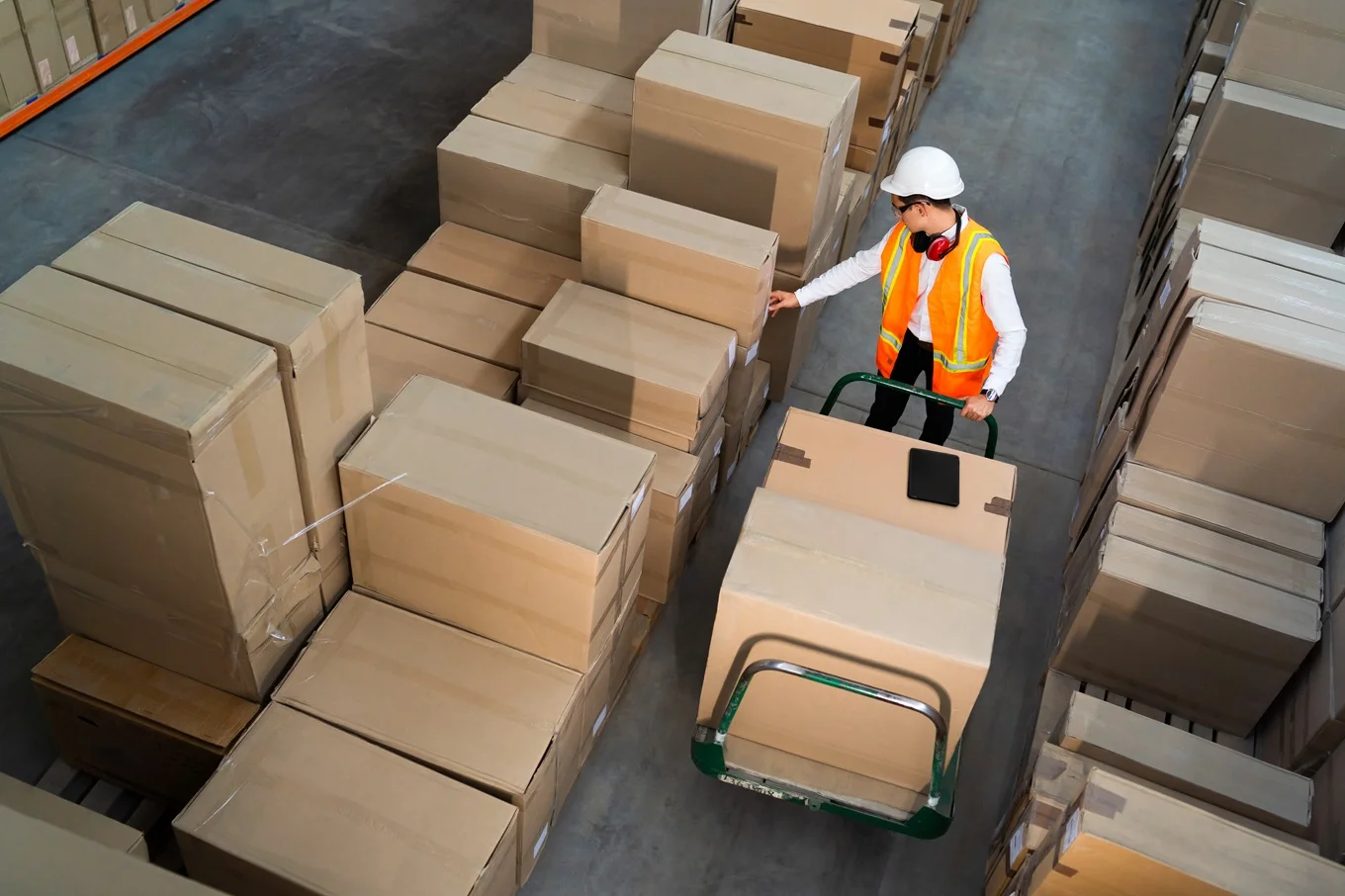
8 Problems with Internal Transport and How to Solve Them by Implementing the Mizumashi Train
Daily Intralogistics Challenges
Many companies struggle with a variety of logistics issues that affect their daily operations. Implementing a Mizumashi train (milkrun) can significantly improve the situation. Below is a detailed analysis of the most common challenges related to internal transportation and the benefits of using a Mizumashi train.

What is a Mizumashi Train?
The name “Mizumashi” comes from the Japanese language and is associated with the culture and practices of lean manufacturing, which have their roots in Japan. The word “Mizumashi” literally means “water carrier” or “man who carries water.” In the context of manufacturing, this reference symbolizes the regular and reliable delivery of necessary resources to where they are needed, which is analogous to the role of the Mizumashi train in delivering materials to production lines.
In lean manufacturing, the term refers to transport trains that ensure the continuous and timely supply of necessary materials to work stations, minimizing inventory and eliminating waste. The Mizumashi train accomplishes these goals by operating in a milkrun workflow and delivering components at regular intervals, allowing for the smooth running of production processes.
What problems do Mizumashi trains solve?
Mizumashi trains are a solution to many problems related to internal transport in production plants. Thanks to regular and precisely planned deliveries, they minimize the stock of materials on production lines, which in turn reduces storage costs and the risk of raw materials expiring. These trains also eliminate downtime resulting from the lack of materials, providing constant access to the necessary components, which significantly increases the efficiency of production processes.\
Additionally, by optimizing transport routes and schedules, Mizumashi trains improve the overall efficiency of internal logistics, reduce the use of warehouse space and increase employee safety by reducing the movement of transport trolleys. The implementation of an internal transport system based on Mizumashi trains not only reduces operating costs, but also allows for greater flexibility in adapting to dynamic changes in production and contributes to the reduction of energy consumption and CO2 emissions, supporting an ecological approach to plant management.

Large stocks of materials on the production line
One of the main problems in production plants is large stocks of materials, which take up valuable space and generate additional costs. Excess materials can lead to them going out of date, and their management becomes more difficult. Implementing the Just-In-Time (JIT) system in combination with the Mizumashi train allows for more frequent deliveries, which significantly reduces the amount of stored materials. Synchronizing deliveries with actual production needs and monitoring inventory in real time allows for maintaining minimal but sufficient stocks.

Frequent downtime related to waiting for materials
Production downtime due to lack of materials leads to financial losses and reduces productivity. Constant access to materials is crucial for continuity of production. Mizumashi train ensures regular deliveries, eliminating downtime and increasing productivity. Optimization of the delivery schedule and a system of notifications about low stock levels allows for quick reaction and replenishment of shortages.
Insufficient efficiency of logistics processes
Inefficient logistics processes lead to extended transport times of materials within the plant and increased operating costs. Implementation of the Mizumashi train enables optimization of transport routes, which significantly increases efficiency and reduces costs. Automation of some processes and training of employees in new logistics procedures contributes to further improvement of efficiency.
High storage space consumption
The need to store large quantities of materials takes up valuable space that could be used for other production purposes. Renting additional storage space generates additional costs. Thanks to the more frequent deliveries made by the Mizumashi train, it is possible to reduce inventory and use available space more efficiently. The introduction of high-bay storage systems allows for an increase in storage capacity.
High risk of accidents related to the movement of forklifts
The intensive movement of forklifts inside the plant creates a risk of accidents that threaten the safety of employees and generate costs related to downtime and equipment servicing. Reduction of vehicle traffic due to the use of the Mizumashi train contributes to improved safety. The introduction of safety zones and better road markings inside the plant, as well as regular health and safety training for employees, minimize the risk of accidents.
High internal transport costs
Internal transport costs can significantly impact a company’s profitability. More efficient use of transport means and optimization of routes and schedules with the Mizumashi train allows for lower operating costs. The use of more economical means of transport and systems monitoring fuel and energy consumption allows for the identification and elimination of inefficiencies.
Difficulty in adapting to changes in production
Changing production needs require flexibility and rapid adaptation to new conditions. Delays in order fulfillment and costs related to downtime and process reorganization can be problematic. The Mizumashi train provides greater flexibility in responding to changes by being able to quickly adjust delivery schedules. Regular analysis of production needs and change management systems support flexibility and speed of response.
Increased energy consumption and higher CO2 emissions
The increasing energy costs and negative impact on the environment are serious challenges for modern production plants. Reducing energy consumption and CO2 emissions by optimizing internal transport is essential. The implementation of the Mizumashi train and more energy-efficient means of transport contributes to reducing energy consumption. Additionally, the implementation of renewable energy technologies in logistics processes supports an ecological approach to production.
Mizumashi – a simple solution to complex problems
To sum up, the implementation of the Mizumashi train in production plants allows for solving many problems related to internal transport. Optimization of logistics processes, cost reduction and improvement of safety and flexibility are just some of the benefits that this modern solution brings. Thanks to this, companies can achieve higher efficiency and better meet market requirements.








